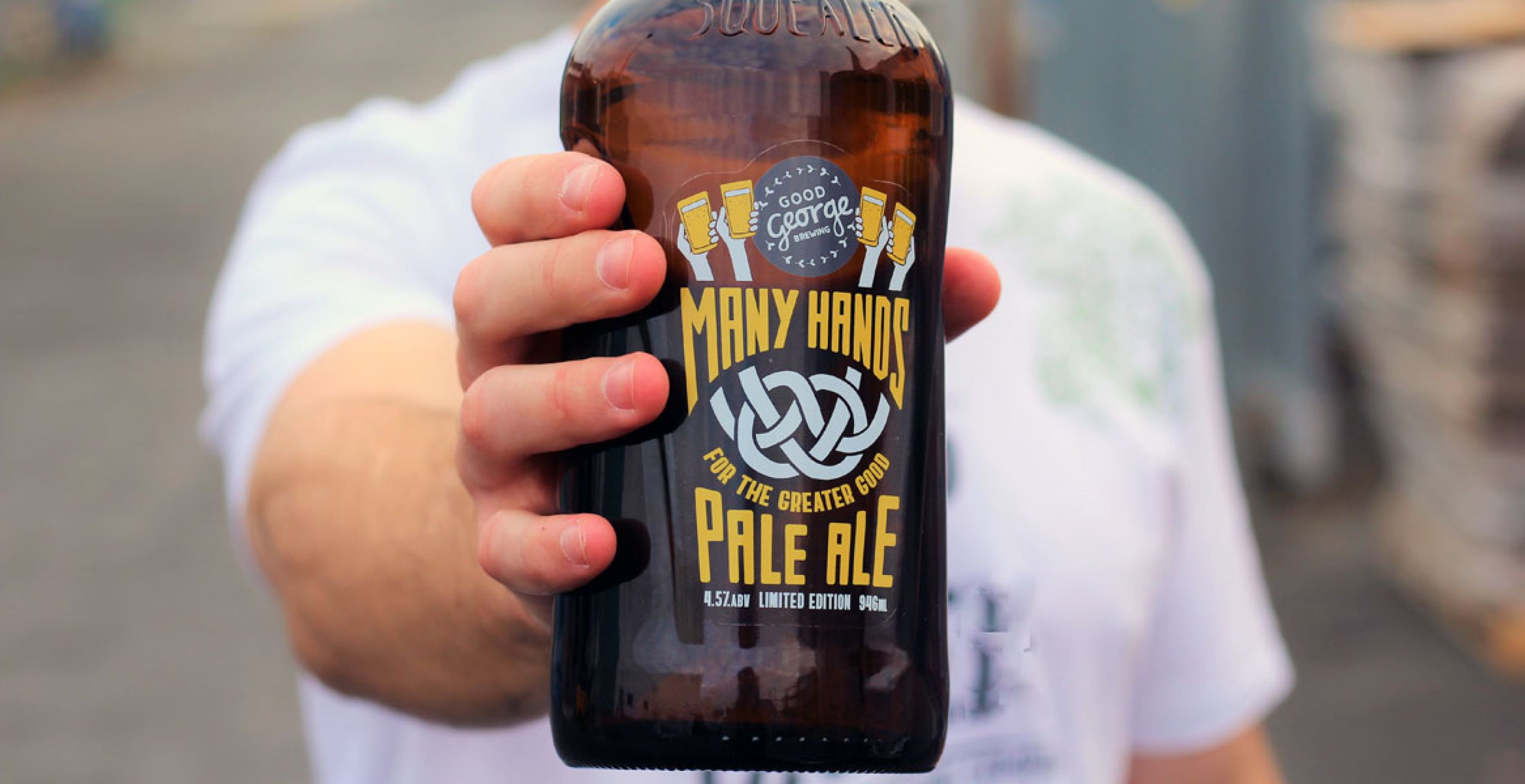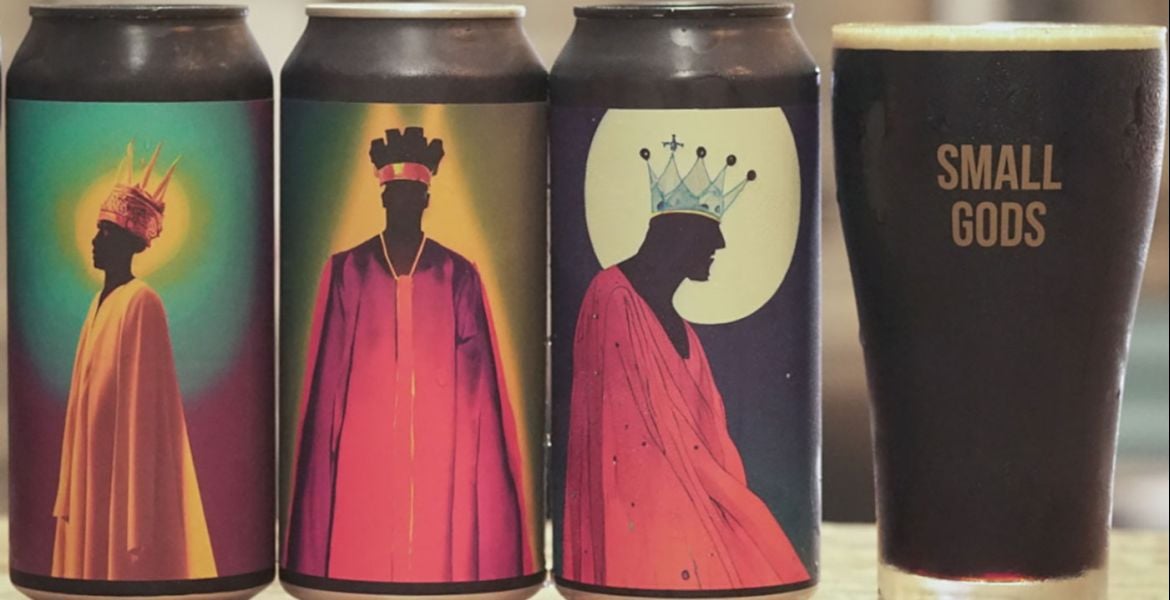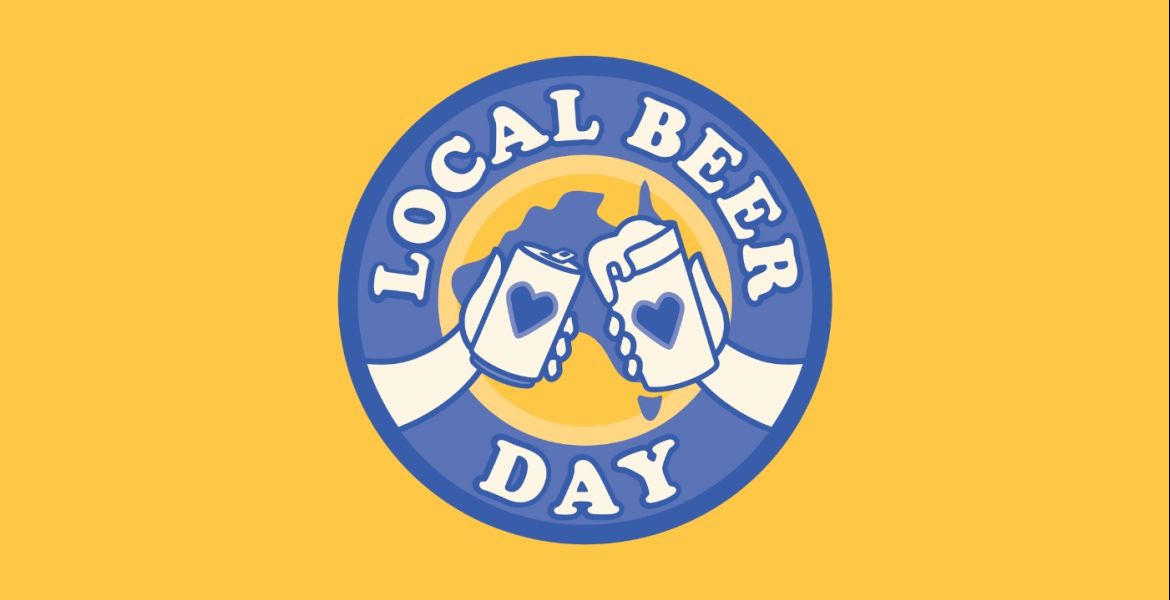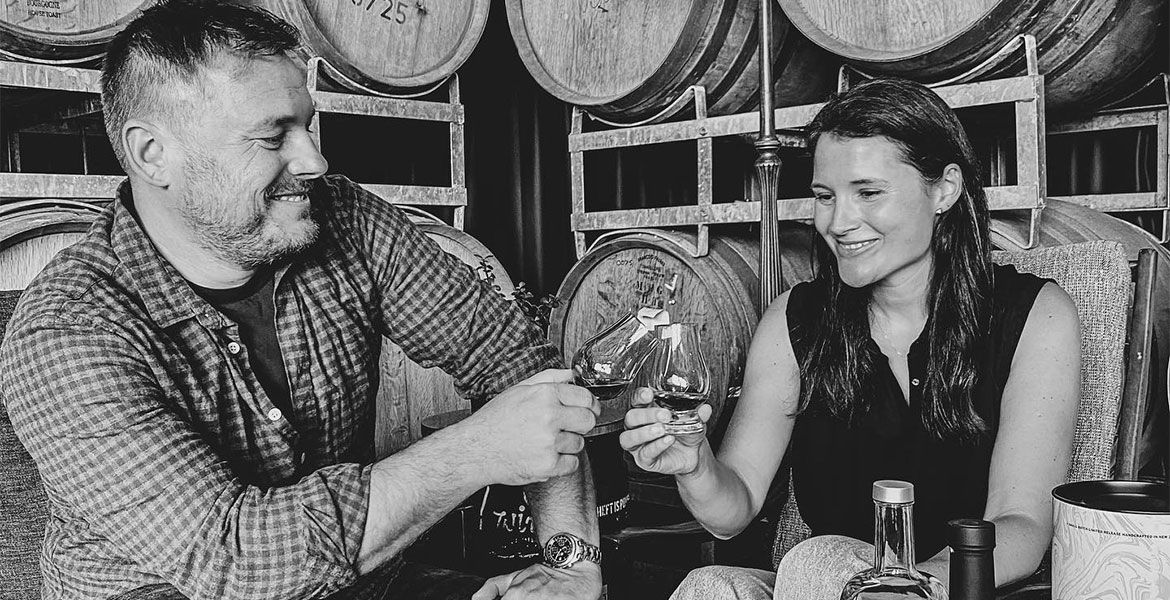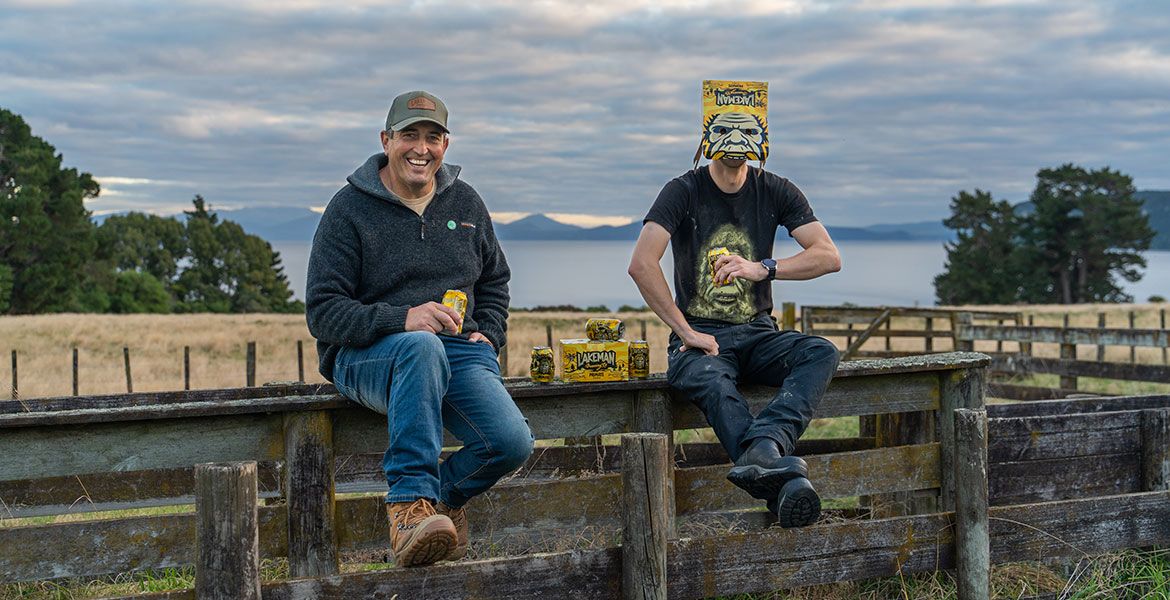There are things we know now that we could never have truly understood before.
We now know what it’s like to sit through a brutal economic lesson where you desperately want a recess but what you end up with is a recession. We know the economy itself is very noisy and that when it gets turned off there are quite a lot of birds around and they’re also noisy but in a good way. We know how quickly, in the absence of hairdressers, you can transform from being generally presentable into a weathered scarecrow. And we know that, despite everything we’ve learned, there are still assholes that won’t keep their distance in the checkout line.
But we in New Zealand also know we’ve fared comparatively well. Auntie Jacinda’s “team of five million” (a number, incidentally, that was only reached because loads of Kiwis – plus a handful of American tech tycoons with fast-tracked visas and doomsday bunkers – flocked home in droves when the rest of the world started losing control) has, by and large, done an admirable job in protecting its teammates from being probed by COVID-19’s spiky proteins.
The price of looking after each other, of pursuing a single goal of virus elimination, has or will be paid in jobs, livelihoods, the destruction of dreams and a generation of debt. As businesses continue bearing the immediate brunt, debate has begun about which industries require another government handout and which should be left to gently drift into the abyss to see if they can somehow float back up again on their own.
Tourism and hospitality feature in this conversation a lot and they share two important traits: they’re both vitally important to the economy, and right now they’re both in deep shit.
It stands to reason that you can’t do tourism with no tourists. As for hospitality, well, hospitality got us into this whole mess. OK, not exactly, but many of New Zealand’s COVID-19 clusters can be linked back to pubs or large celebrations. In terms of industries likely to launch a new wave of infections, hospitality is a honking siren accompanied by a big flashing warning light. That’s why pubs couldn’t open up here when everything else did. We saw what happened in Seoul.
But that’s what makes today so significant in New Zealand. Today our pubs reopen.
It’ll be different, of course. There’ll be no more loitering at the bar. No more standing shoulder to shoulder with strangers at 1am belting out "Don’t Stop Me Now". Patrons must be seated, separated and served by a single waiter. It’ll be slower and more civilised, but it’s something.
Beyond the venues themselves, it’s extremely welcome news for the country’s brewers who saw their kegs sales obliterated overnight.
In fortress New Zealand’s battle plan, almost no businesses were allowed to open during the first four weeks of Level 4, the harshest period of lockdown. In Level 3, online and packaged sales provided some respite for those who had the ability to do it. It’s only now, with the relative freedoms of Level 2, where any meaningful thoughts can be entertained about viability, and even then it’s little more than guesswork.
And in that unknown lies an inherent fear: can we really be trusted to go out drinking and not fuck up all the good work that’s been done? After all, this is little more than a country of villages and every one has an idiot.
You wouldn’t class Brian Watson in that category, however. He’s enjoyed a long career in the beer industry, ranging from brewing consultancy to selling brewing equipment to international beer judging. Now he’s a co-founder and head of brewing at Good George Brewing, a surprisingly sprawling hospitality business with its heart and brewery in Hamilton, just over 100 kilometres south of Auckland.
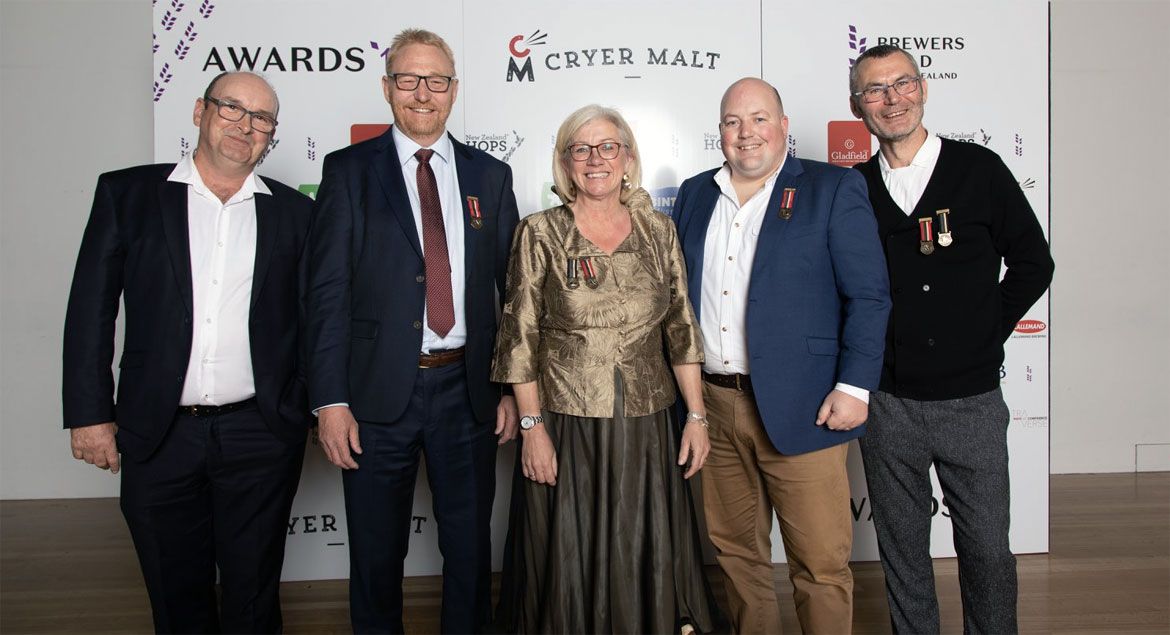
Fundamentally, the narrative of Good George’s lockdown flows much the same as every other shuttered business. But, equally, every story is slightly different. So, on the eve of the Level 2 restrictions being announced, we asked Brian for a scene setter.
“Revenue wise, we’re well below normal,” he says. "We’ve got a unique business with twelve bars we’re associated with – the brewery is part of some, but not all of them, some are owned by my business partners and some by other people. But all of them are closed.
“Supermarkets wouldn’t take beer because they needed the room for toilet paper. We supply all the beer for the Hobbiton Movie Set and they do significant volumes [but it’s] not going to be open for the foreseeable future.
"We didn’t really have an online business six weeks ago – it was there, but we did nothing with it. But necessity is the mother of invention. You look at people with kegs repackaging into cans and delivering to their neighbourhood – if you’ve got the will, there’s a way. The scale is just a number, just what you need to do to keep the doors open.
“We had to do something and we had to do it fast”.
From a business perspective, one of the verbs du jour during this pandemic has been "pivot". And, when the world around you very suddenly resembles an Escher drawing, it certainly helps to have a bit of creative wherewithal and a slightly gung-ho attitude with which to try and forge a way through. That and a still.
Brian continues: “We were sitting in a meeting on the Monday afternoon when they announced the lockdown and we just thought we’d get everyone set up at different work stations with hand sanitiser, and someone said, ‘You can’t get hand sanitiser’. We thought, ‘What? Surely it can’t be that hard’.
"I heard about a Scottish brewery making it so I looked it up on the WHO website and there’s the recipe: it’s four ingredients. So, on Tuesday morning we decided to do it and by Thursday we had hand sanitiser coming out of the still.
“We gave it away for the first few weeks and got through 1200 bottles. Then we thought, ‘OK, let’s sell some beer’ but without putting any value on the sanitiser because it didn’t really feel right. It was more, ‘Buy some beer, get some hand sanitiser at the same time’."
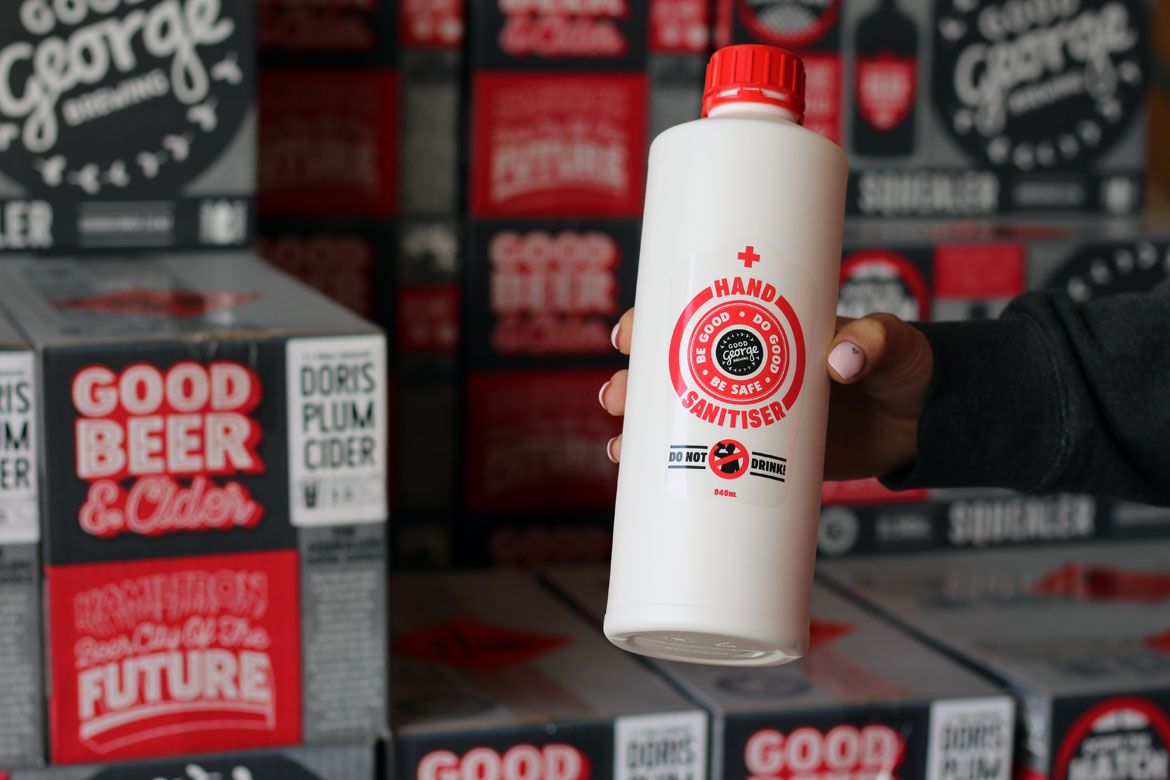
They shifted the sanitiser so quickly they ended up getting the next batches scaled up and produced offsite, a move that required the help of a number of other suppliers and producers who were also going through their own forms of difficulty. So, in thanks, the brewery then made a beer to celebrate the willingness of people to pitch in and help out in a time of need. It was called Many Hands.
With the still now free, they employed it to do another job other than the gin distilling for which it was bought: recycling old beer.
Says Brian: “We said to anybody in the industry that’s got our beer, ‘We’ll buy it back’.
“I’m going to turn it into whisky. So in two years we’ll have a COVID-19 barrel of whisky. You’ve got to have a bit of fun. It’s all been doom and gloom, but we’ve managed to retain our sense of humour and positivity.”
A sunny outlook can count for a lot in dark times. So, with an eye towards a most mystifying future, I asked Brian whether this time of change might, somehow, have a net positive effect for the country’s smaller brewers. Would it be too hopeful to believe that the "buy local" message, which independent breweries have put at the forefront of their sales pitch for years and is now being touted as a quasi-nationalistic foundation of economic recovery, might go so far as to allow independents to eat up a bit more marketshare?
“You hope that people are making sensible decisions,” he says. "If the opportunity’s there to buy something that’s produced locally and supports local businesses and jobs, you hope people have the awareness to make the right decision. And I think we are seeing that.”
There is, of course, a fundamental driver of purchasing behaviour where smaller brewers are unable to compete: price.
In an economic environment where the general outlook seems to get a little bit worse every day, a lot of people have, or will soon have, less to spend. This creates a problematic scenario for producers of products perceived as being of higher quality but which tend to be considerably more expensive than the dominant high volume, low margin brands pouring from the factories of the multinational brewers.
Says Brian, “We [independent brewers] can’t make beer at the same cost base. We can never – nor should we – be putting value products into the market. When it comes to people buying a six-pack for $10.99 or $12.99, craft brewers just cannot afford to do that. If they did, they’d go broke. Those brewers that can do that aren’t local. Hopefully people are choosing quality over quantity.”
Right now there’ll be plenty of hopes riding on that sort of optimism. But there’s another pressing question that will go a long way to determining the longterm survival of small breweries dependent on anything except online sales: are people actually ready to go out to pubs again?
It’s perfectly reasonable to believe that a person who’s spent weeks locked indoors while being spoon fed news of humanity’s silent suffocation by an invisible enemy could be sent spiralling into a Howard Hughes style reclusiveness and germ phobia. So is Brian ready to starting rocking the pubs.
“In a heartbeat!” he says.
“We went up to Matamata to visit a waterfall and we’d have gone past 150 people going up and down the track, so people are ready to get out. The bars in our business are very conscious of being able to prove to the consumer that we’re doing everything to keep you and our staff safe, so why wouldn’t you?
"First, we’re itching to get out and see people and, second, what a great way to support these businesses we know are hurting dramatically.”
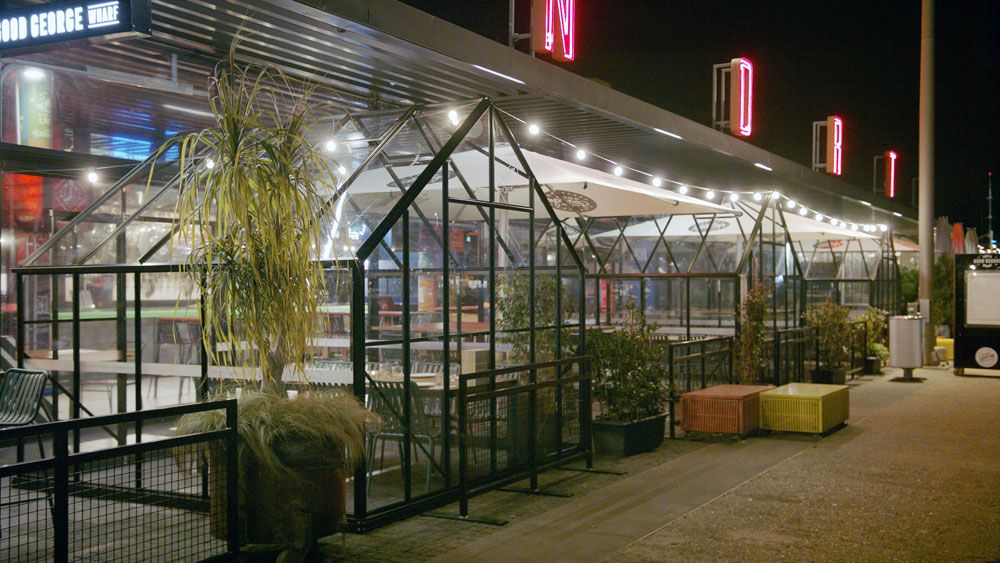
If outright exuberance isn’t enough to convince you it’s worth venturing out, Good George has a bona-fide Insta-perfect ace up its sleeve.
At their Auckland venue, Good George North Wharf, instead of simply distancing their outdoor tables they’ve built glasshouses over of the top of them – the same kind you might have in your backyard if you wanted to grow veggies or a sneaky bit of weed. But set up here they’re the latest and best in DIY social distancing anti-viral capsule technology: a private dining experience on the waterfront, under the southern stars, protected from the New Zealand winter and the sneezes of passers-by. Frankly it looks like it’d make for a fun night out, whether you’re in a pandemic or not.
While Good George has managed to manoeuvre itself within the lockdown in a way that makes the inevitable losses somewhat easier to swallow, weathering the storm so far appears for them to have been as much about attitude as it has application.
“I’ve had quite a few conversations with Jaron Mitchell from 4 Pines," Brian says. "We share similar views on the world and he said, ‘It’s been like going back to the start of the business, shooting from the hip: you do something, it doesn’t work, and you try something else’. It’s actually been really exciting.
“But failure is not an option for us. Never has been, never will be and I’m just fortunate to have business partners who think the same way. We’re excited about moving forward.”
Aren’t we all.
As part of the #keepinglocalalive campaign we're running Postcards from the Edge stories, highlighting the ways in which people are adapting to survive. If you've got a story you think is suitable – or have something to add to the campaign resources online – get in touch.




